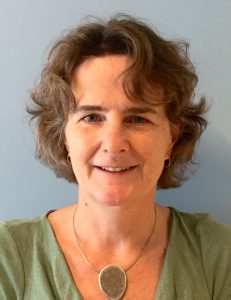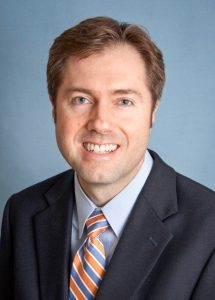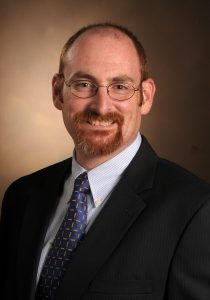Self-directed learning in your curriculum—getting from theory to practice.
Presented by Sandrijn Vanschaik, MD, PhD, Douglas Larsen, MD, William Cutrer, MD on September 15, 2016 at 12:00 pm
In today’s health care arena with rapidly expanding knowledge, yesterday’s best practice may be obsolete tomorrow. This creates an imperative for physicians to be life-long learners. As students progress through medical education their learning will need to be increasingly self-directed and develop the necessary skills to diagnose and address their own learning gaps. Despite the growing recognition that such skills can and should be taught, this is not yet a consistently integrated component of medical school curriculum. In this webinar, we will first define terminology and explain theoretical frameworks that guide our understanding of self-directed, life-long learning; including metacognition, self-regulation, informed self-assessment and the newer framework of master adaptive learning. We will then provide a brief literature review of strategies employed to help students develop the relevant skills, including the use of reflection, learning plans, portfolios and coaches. We will discuss challenges encountered when applying theoretical frameworks to practical strategies and areas of ambiguity in which more research is needed. We will end with some practical suggestions based on the literature and our own experiences.
Related
Seminar Archive
Presenter Bios
 Dr. van Schaik is Associate Professor of Pediatrics at the University of California San Francisco (UCSF) where she serves as Education Director of the UCSF Kanbar Center for Simulation, Fellowship Director for Pediatric Critical Care Medicine and Director of Faculty Development for the new UCSF School of Medicine Bridges Curriculum. She completed her medical school training at the University of Amsterdam, the Netherlands, followed by a PhD from the University of Utrecht, the Netherlands and residency training in pediatrics at the New England Medical Center/Tufts University in Boston, MA. She came to UCSF for pediatric critical care fellowship and has been on faculty since 2006. Her academic career focus is on health professions education with a research focus on self-directed learning as well as interprofessional teamwork, communication and feedback. She has completed a medical education research fellowship at UCSF and was part of the Josiah Macy Faculty Scholars Program from 2012 to 2014.
Dr. van Schaik is Associate Professor of Pediatrics at the University of California San Francisco (UCSF) where she serves as Education Director of the UCSF Kanbar Center for Simulation, Fellowship Director for Pediatric Critical Care Medicine and Director of Faculty Development for the new UCSF School of Medicine Bridges Curriculum. She completed her medical school training at the University of Amsterdam, the Netherlands, followed by a PhD from the University of Utrecht, the Netherlands and residency training in pediatrics at the New England Medical Center/Tufts University in Boston, MA. She came to UCSF for pediatric critical care fellowship and has been on faculty since 2006. Her academic career focus is on health professions education with a research focus on self-directed learning as well as interprofessional teamwork, communication and feedback. She has completed a medical education research fellowship at UCSF and was part of the Josiah Macy Faculty Scholars Program from 2012 to 2014.
 Dr. Douglas Larsen is a medical education researcher, teacher, and practicing pediatric neurologist. His research interests include self-regulated and socially-regulated learning as well as the role of memory in education. His work focuses on developing theory-based, practical interventions that improve day-to-day educational practice. He has developed collaborations across various disciplines and institutions. Dr. Larsen completed his medical degree at the University of Utah School of Medicine in 2003. He pursued residency training in pediatrics at Cincinnati Children’s Hospital, and then trained in pediatric neurology at St. Louis Children’s Hospital and Washington University. He has been on the faculty at the Washington University in St. Louis School of Medicine since 2008. He received a master’s degree in education from the University of Cincinnati in 2010. Dr. Larsen was a Macy Faculty Scholar of the Josiah Macy Jr. Foundation from 2014-2016. He is the Director of Medical Student Education for the Division of Pediatric Neurology.
Dr. Douglas Larsen is a medical education researcher, teacher, and practicing pediatric neurologist. His research interests include self-regulated and socially-regulated learning as well as the role of memory in education. His work focuses on developing theory-based, practical interventions that improve day-to-day educational practice. He has developed collaborations across various disciplines and institutions. Dr. Larsen completed his medical degree at the University of Utah School of Medicine in 2003. He pursued residency training in pediatrics at Cincinnati Children’s Hospital, and then trained in pediatric neurology at St. Louis Children’s Hospital and Washington University. He has been on the faculty at the Washington University in St. Louis School of Medicine since 2008. He received a master’s degree in education from the University of Cincinnati in 2010. Dr. Larsen was a Macy Faculty Scholar of the Josiah Macy Jr. Foundation from 2014-2016. He is the Director of Medical Student Education for the Division of Pediatric Neurology.
 Dr. Cutrer received his M.D. with high distinction from the University of Kentucky College of Medicine and completed his Pediatrics residency, chief residency and Pediatric Critical Care fellowship at Baylor College of Medicine and Texas Children’s Hospital. He also has a Master of Education from the University of Cincinnati. Dr. Cutrer is an Assistant Professor of Pediatrics in the Division of Pediatric Critical Care Medicine at Vanderbilt University School of Medicine (VUSM). He is actively involved in medical student education and curriculum development. Dr. Cutrer is very interested in understanding how students learn in the workplace and how to help them more effectively. He has published and presented widely on these topics. He co-leads the AMA’s Accelerating Change in Medical Education initiative Master Adaptive Learner Working Group and is a member of the Vanderbilt core team participating in the AAMC pilot project Core Entrustable Professional Activities for Entering Residency (CEPAER).
Dr. Cutrer received his M.D. with high distinction from the University of Kentucky College of Medicine and completed his Pediatrics residency, chief residency and Pediatric Critical Care fellowship at Baylor College of Medicine and Texas Children’s Hospital. He also has a Master of Education from the University of Cincinnati. Dr. Cutrer is an Assistant Professor of Pediatrics in the Division of Pediatric Critical Care Medicine at Vanderbilt University School of Medicine (VUSM). He is actively involved in medical student education and curriculum development. Dr. Cutrer is very interested in understanding how students learn in the workplace and how to help them more effectively. He has published and presented widely on these topics. He co-leads the AMA’s Accelerating Change in Medical Education initiative Master Adaptive Learner Working Group and is a member of the Vanderbilt core team participating in the AAMC pilot project Core Entrustable Professional Activities for Entering Residency (CEPAER).
Related
 Dr. van Schaik is Associate Professor of Pediatrics at the University of California San Francisco (UCSF) where she serves as Education Director of the UCSF Kanbar Center for Simulation, Fellowship Director for Pediatric Critical Care Medicine and Director of Faculty Development for the new UCSF School of Medicine Bridges Curriculum. She completed her medical school training at the University of Amsterdam, the Netherlands, followed by a PhD from the University of Utrecht, the Netherlands and residency training in pediatrics at the New England Medical Center/Tufts University in Boston, MA. She came to UCSF for pediatric critical care fellowship and has been on faculty since 2006. Her academic career focus is on health professions education with a research focus on self-directed learning as well as interprofessional teamwork, communication and feedback. She has completed a medical education research fellowship at UCSF and was part of the Josiah Macy Faculty Scholars Program from 2012 to 2014.
Dr. van Schaik is Associate Professor of Pediatrics at the University of California San Francisco (UCSF) where she serves as Education Director of the UCSF Kanbar Center for Simulation, Fellowship Director for Pediatric Critical Care Medicine and Director of Faculty Development for the new UCSF School of Medicine Bridges Curriculum. She completed her medical school training at the University of Amsterdam, the Netherlands, followed by a PhD from the University of Utrecht, the Netherlands and residency training in pediatrics at the New England Medical Center/Tufts University in Boston, MA. She came to UCSF for pediatric critical care fellowship and has been on faculty since 2006. Her academic career focus is on health professions education with a research focus on self-directed learning as well as interprofessional teamwork, communication and feedback. She has completed a medical education research fellowship at UCSF and was part of the Josiah Macy Faculty Scholars Program from 2012 to 2014. Dr. Douglas Larsen is a medical education researcher, teacher, and practicing pediatric neurologist. His research interests include self-regulated and socially-regulated learning as well as the role of memory in education. His work focuses on developing theory-based, practical interventions that improve day-to-day educational practice. He has developed collaborations across various disciplines and institutions. Dr. Larsen completed his medical degree at the University of Utah School of Medicine in 2003. He pursued residency training in pediatrics at Cincinnati Children’s Hospital, and then trained in pediatric neurology at St. Louis Children’s Hospital and Washington University. He has been on the faculty at the Washington University in St. Louis School of Medicine since 2008. He received a master’s degree in education from the University of Cincinnati in 2010. Dr. Larsen was a Macy Faculty Scholar of the Josiah Macy Jr. Foundation from 2014-2016. He is the Director of Medical Student Education for the Division of Pediatric Neurology.
Dr. Douglas Larsen is a medical education researcher, teacher, and practicing pediatric neurologist. His research interests include self-regulated and socially-regulated learning as well as the role of memory in education. His work focuses on developing theory-based, practical interventions that improve day-to-day educational practice. He has developed collaborations across various disciplines and institutions. Dr. Larsen completed his medical degree at the University of Utah School of Medicine in 2003. He pursued residency training in pediatrics at Cincinnati Children’s Hospital, and then trained in pediatric neurology at St. Louis Children’s Hospital and Washington University. He has been on the faculty at the Washington University in St. Louis School of Medicine since 2008. He received a master’s degree in education from the University of Cincinnati in 2010. Dr. Larsen was a Macy Faculty Scholar of the Josiah Macy Jr. Foundation from 2014-2016. He is the Director of Medical Student Education for the Division of Pediatric Neurology. Dr. Cutrer received his M.D. with high distinction from the University of Kentucky College of Medicine and completed his Pediatrics residency, chief residency and Pediatric Critical Care fellowship at Baylor College of Medicine and Texas Children’s Hospital. He also has a Master of Education from the University of Cincinnati. Dr. Cutrer is an Assistant Professor of Pediatrics in the Division of Pediatric Critical Care Medicine at Vanderbilt University School of Medicine (VUSM). He is actively involved in medical student education and curriculum development. Dr. Cutrer is very interested in understanding how students learn in the workplace and how to help them more effectively. He has published and presented widely on these topics. He co-leads the AMA’s Accelerating Change in Medical Education initiative Master Adaptive Learner Working Group and is a member of the Vanderbilt core team participating in the AAMC pilot project Core Entrustable Professional Activities for Entering Residency (CEPAER).
Dr. Cutrer received his M.D. with high distinction from the University of Kentucky College of Medicine and completed his Pediatrics residency, chief residency and Pediatric Critical Care fellowship at Baylor College of Medicine and Texas Children’s Hospital. He also has a Master of Education from the University of Cincinnati. Dr. Cutrer is an Assistant Professor of Pediatrics in the Division of Pediatric Critical Care Medicine at Vanderbilt University School of Medicine (VUSM). He is actively involved in medical student education and curriculum development. Dr. Cutrer is very interested in understanding how students learn in the workplace and how to help them more effectively. He has published and presented widely on these topics. He co-leads the AMA’s Accelerating Change in Medical Education initiative Master Adaptive Learner Working Group and is a member of the Vanderbilt core team participating in the AAMC pilot project Core Entrustable Professional Activities for Entering Residency (CEPAER).